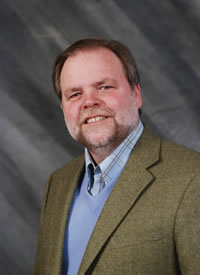Dancing with Diana – 2 - A Big Enough Christianity (Bruce Epperly)
 How big is your Christianity? That is the question Bruce Epperly raises in this second installment of his engagement with Diana Butler Bass's book Christianity After Religion
How big is your Christianity? That is the question Bruce Epperly raises in this second installment of his engagement with Diana Butler Bass's book Christianity After Religion
***********************
Dancing with Diana – 2 - A Big Enough Christianity
Bruce Epperly
In my dance with Diana Butler Bass’ Christianity After Religion , I was struck by author Anne Rice’s resignation from Christianity. (20) She quit being a Christian because the Christianity she was hearing about was anti-secular humanism, anti-science, anti-contraception, anti-Democrat, and anti-life. I would add, with many of today’s seekers, anti-GLBL as well. I am with her! That is not my faith, if this is what it means to be Christian.
, I was struck by author Anne Rice’s resignation from Christianity. (20) She quit being a Christian because the Christianity she was hearing about was anti-secular humanism, anti-science, anti-contraception, anti-Democrat, and anti-life. I would add, with many of today’s seekers, anti-GLBL as well. I am with her! That is not my faith, if this is what it means to be Christian.
Recently, I had a surprising conversation on a plane flight. My seat-mate was from a church pastored by a popular Christian author. We had a nice conversation, all the way through, but he was amazed that I was a supporter of President Obama. His brand of Christianity couldn’t imagine a follower of Jesus being for universal health care, social safety nets, and openness to the GLBT community. That happens often enough to many us that we want to apologize to seekers when we call ourselves Christian – “I’m a Christian, but….” or “I’m a progressive Christian.” Many of us want to claim Jesus as our teacher, inspiration, and healer, but are tired of being “Christian buts.”
One of my professors Bernard Loomer spoke of size [or what I call “stature”] as essential to healthy religion. Loomer noted that if a religious doctrine didn’t have “size,” he wasn’t interested in it, even if it claimed to be “orthodox.” What Loomer meant was that we needed a faith that was large enough to contain diverse visions of reality and understandings of the human condition without losing its dynamic and growing center.
To many Christians, having a small and unyielding faith is a virtue. They believe fidelity involves excluding as much diversity – and reality – as possible. They assume that everything we need to know about life is found in a nineteenth century interpretation of scripture, the rationalism that gave us the lifeless Bible of fundamentalism and a static unscientific, anti-ecological, and parochial faith that many identify with “orthodoxy.”
I want a living Bible, a living faith, and a living spirituality. I want a faith big enough to dance with the Dalai Lama and to ruminate with Rumi. I want a faith that embraces heart, mind, and soul, and that lives by “contrast” rather than “opposition.” I want a faith that rejoices in photographs from the Hubble telescope and grieves at the realities of global climate change. I want a faith big enough to see insight in those who differ with me: though I disagree with fundamentalism we can find common ground in honoring tradition and cherishing scripture; though I find the politics of austerity contrary to the Christian message, we can agree that we need to be economically wise and efficient; though I affirm the presence of God in every moment of life, I can honor the agnostic’s questions and the atheist’s challenges as authentic expressions of their own spiritual journey and invitations to a creative, self-critical faith. (For more on my approach to a faith with sufficient stature, see Emerging Process: Adventurous Theology for a Missional Church; Process Theology: A Guide for the Perplexed; Holy Adventure: 41 Days of Audacious Living.)
Jesus is the model of a big enough, large spirited faith. Luke 2:41-41 describes young Jesus’ dialogue with the religious leaders. He asked questions, listened, and shared his story. His faithfulness to God inspired him to live forward rather than backward. The scripture culminates with the words, “Jesus grew in wisdom and stature and favor with God and humankind.” Jesus’ world constantly expanded as he embraced and affirmed diversity: his hospitality was not unilateral but dialogical, receiving as well as giving. Jesus’ healing was not one-sided but a partnership. Jesus did not horde power or knowledge but assured his followers that they could do greater things. This surely means growth and expansiveness and willingness to initiate novelty to match the changes in our world.
Faithfulness to Christ means cultivating spiritualities, theologies, and practices that are big enough for Anne Rice and other seekers and that have evolving and growing stature, lively enough to embrace, affirm, learn from, and witness to the varieties of religious, cultural, gender, sexual, and scientific experiences of our world. Size matters! Growth matters! Innovation matters! Let’s dance!
Bruce Epperly is a theologian, spiritual guide, pastor, and author of twenty two books, includingProcess Theology: A Guide to the Perplexed, Holy Adventure: 41 Days of Audacious Living, Philippians: An Interactive Bible Study, and The Center is Everywhere: Celtic Spirituality for the Postmodern Age. His most recent text is Emerging Process: Adventurous Theology for a Missional Church. He also writes regularly for the Process and Faith Lectionary and Patheos.com. He may be reached at drbruceepperly@aol.com for lectures, workshops, and retreats.
Comments
Somewhere there is a line, but even Augustine couldn't find well enough for my taste. (something like: In that some who are out seem to be in and some who are in seem to be out)